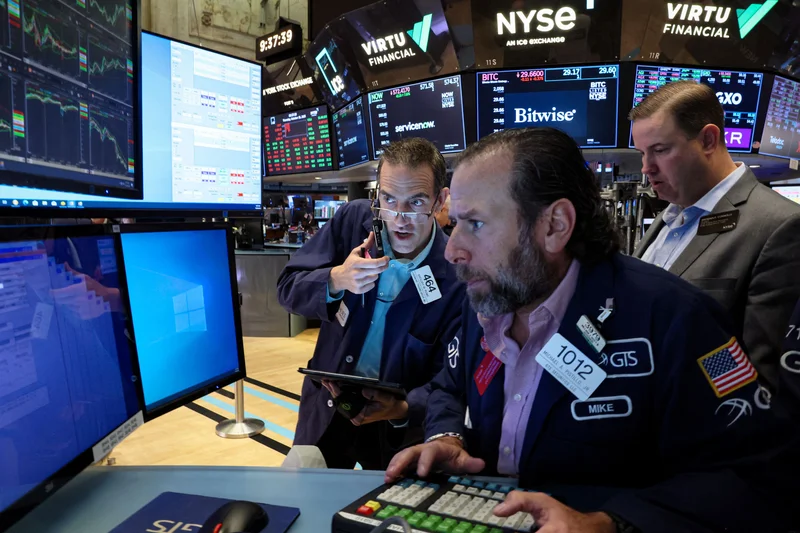Okay, so everyone thought the economy was circling the drain. Then, BAM, a seemingly solid jobs report and some blockbuster earnings – Nvidia, Walmart, the usual suspects – and suddenly there's chatter about a comeback? Let's pump the brakes and actually look at the numbers, shall we?
Decoding the Data Deluge
The jobs report is, to put it mildly, a Rorschach test. The headline number – 119,000 jobs added – looks good, right? More than double what economists predicted. But dig a little deeper, and the picture gets murkier than a municipal water supply. July's numbers got revised down from 79,000 to 72,000. August? Originally 22,000...now showing a loss of 4,000 jobs. So, September's bump is welcome, sure, but it hardly erases the concerning trend.
Heather Long at Navy Federal Credit Union hit the nail on the head: it's a relief it wasn't worse, but almost every number has been revised down lately. Mark Zandi over at Moody's Analytics is still sweating bullets about the job market. And honestly, so am I. The unemployment rate is low, sure, but creeping toward 5%. That's the danger zone where a negative cycle can really kick in.
And this is the part of the report that I find genuinely puzzling: all this talk of a "strong" economy while 76% of Americans have a negative view of it. That's a massive disconnect.
Let's talk about the K-shaped recovery, shall we? It’s not so much a recovery as a diverging path. The wealthy are doing just fine (thank you very much surging stock market). Everyone else? They're getting squeezed. Home Depot and Target are ringing alarm bells – fewer visits, less spending. Chipotle, Coca-Cola, Crocs (yes, even Crocs!) are singing the same tune. Households earning under $100,000 are cutting back because, well, they have to. Walmart, though? Walmart is killing it, specifically with customers earning over $100,000. They're trading down, looking for value. It's like watching a boa constrictor slowly digest a golf ball.

The AI Mirage and the Fed's Dilemma
The stock market's recent swoon and rebound is a case study in irrational exuberance, followed by a dose of reality. Palantir's weak forecast triggered a mini-panic, dragging down AI stocks. Then Nvidia swooped in with earnings that defied gravity, and the market went wild again. But let's not mistake a few good earnings reports for a healthy economy. The market isn't the economy. (I feel like I have to repeat that every time I write one of these.) As Stocks tumble, Nasdaq closes 2% lower after stunning reversal in AI, Nvidia stocks reported, the AI sector's volatility can significantly impact overall market performance.
The Fed is stuck between a rock and a hard place. The jobs data and Nvidia's earnings might convince them to hold off on interest rate cuts in December. But that risks keeping consumer loans high, further squeezing the middle class. On the other hand, cutting rates could fuel inflation. It's a classic lose-lose situation.
Trump's team is floating ideas like lowering housing costs, stimulus checks, and tariff cuts. Desperate measures for desperate times? Maybe. Are they likely to work? Economists are split, which means, in reality, nobody knows.
Here's the bottom line: people hate this economy because they can't afford things. Until that changes, all the positive spin in the world won't make a difference. I’ve looked at hundreds of these economic reports, and this one, in particular, screams “false positive”.
So, What's the Real Story?
The economy isn't "back." It's a bifurcated mess where the rich get richer, and everyone else struggles to keep their heads above water. The numbers are telling a story, but the narrative being pushed is a fairy tale.
